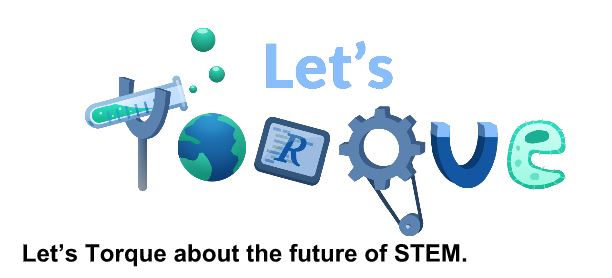By James
Tired of waking up for those 8 am lectures? Stressed out by the prospect of exams? Looking to contribute some new knowledge to the scientific community? If one or more of these apply to you, and you’ve completed the prerequisites listed here, then PHA3990 is for you!
PHA3990 (Action in pharmacology research project) is a research-based unit available to high performing students who have an interest in biomedical science. It’s worth the same number of credits as a standard third-year science unit, but unlike them, there aren’t any soul-draining lectures or tutorials. And the best part? NO EXAM! All you need to do is rock up to your lab every so often (usually one or two times per week for a few hours) and do the required work on your research project – exactly like a real scientist! If you have an interest in research, or even if you’re not sure and want to see whether research is for you, then PHA3990 provides the perfect opportunity to test the waters! The choice of a research project is all yours, and you have the opportunity to work with a number of amazing teams within the Department of Pharmacology, including the vascular and immunopharmacology group, the integrative cardiovascular pharmacology group, the respiratory pharmacology group, and many, many more! You have so many options that you’re bound to find something that interests you. No matter what project you choose, you’re guaranteed to learn a lot and contribute new knowledge to the scientific community, which is pretty awesome.
Why PHA3990, you ask? Why not a research project in some other area? Well, the researchers in the Department of Pharmacology are not only all amazing, friendly people, they’re also world-leaders in their field. In fact, in 2016, Monash was ranked equal fourth in the world for pharmacy and pharmacology – behind only Harvard, Cambridge and Oxford! Pretty amazing, right? World-leading researchers – right at your university! – who want you on their team… how many times do you get an amazing opportunity like that?
In terms of assessments, you’ll need to give two presentations (seminars) – one near the start of your project and another towards the end (10% each) – write a literature review (10%), and then complete your final report (50%). Your supervisor will also assess how you’ve performed in the lab throughout the semester (20%). Unlike some other units, where sometimes it might feel like you’ve been left in the dark, your knowledgeable supervisor is always there to provide clarification, and they’ll help you out with any problems you’re having with the assessments. You’re part of their team – they want you to do well!
If you think research is for you, and you’re thinking about pursuing an honours program, especially if you’re interested in pharmacology, then PHA3990 is the perfect stepping stone. Not only will it introduce you to experimental techniques essential in the arsenal of any biomedical researcher, you’ll gain a deeper insight into the inner workings of the Department of Pharmacology, including the research they’re currently performing, and you’ll get to make connections with all the pioneering (and very insightful and friendly) staff. Your friends will be entering their honours year without much background, but having done PHA3990, you’ll already have figured out what research projects interest you, made connections with your potential supervisors, and know exactly how to navigate your way through the challenges of scientific experimentation.
As an example of the kind of work you could be doing as part of PHA3990, I’ll give you a little bit of background to my own research project, which I’m undertaking with Prof. Chris Sobey and Dr. Michael De Silva. My project is investigating the role of oxidative stress in determining ischaemic stroke outcome. Basically, we induce stroke in mice* – using a really cool technique called photothrombosis, which you can read more about here – and use computer programs to test their motor function (how well they walk and whether they prefer one side of their body during motor tasks). Afterwards, we excise their cerebral arteries and measure how much hydrogen peroxide (a reactive oxygen species) is being produced. We already know that superoxide (another reactive oxygen species) is elevated after stroke, and that it contributes to vascular dysfunction that worsens outcome, but very little has been done investigating the role of hydrogen peroxide. Additionally, we’re testing how overexpression of NOX4, an enzyme whose sole function is the generation of reactive oxygen species (namely hydrogen peroxide), affects motor deficits and vascular hydrogen peroxide production after stroke. If we find that overexpression of NOX4 leads to greater production of hydrogen peroxide in the cerebral arteries and worse motor deficits, it will pave the way for the development of new pharmacological therapies for stroke in humans; potentially, for example, drugs that reduce NOX4 activity.
So, as you can see, doing PHA3990 gives you an amazing opportunity to engage in cutting-edge research, and contribute to discoveries that could pave the way for new treatments for a whole range of diseases. My experience with PHA3990 has been very positive, and I’d highly recommend it to anyone interested in pharmacology!
*NB: Although working with animals in scientific research is a great experience, if you think it might make you a little bit uneasy, there are plenty of projects available that allow you to avoid it, and there is absolutely no pressure to do anything you’re uncomfortable with!
And if you’re interested in finding out more about a career in biomedical research…
Head along to the Science Industry Week event on September 7 – from 6:15 PM to 8:15 PM – where you’ll hear guest speakers from the biomedical science industry discuss how working in the field operates. In addition to learning more about jobs in the industry, attending the event will provide a fantastic opportunity to network with leaders in the biomedical sciences.
If you’d like to find out more, feel free to contact Lisa Happell (lisa.happell@monash.edu) and she’ll help you out.





